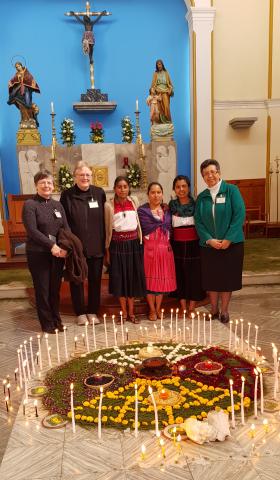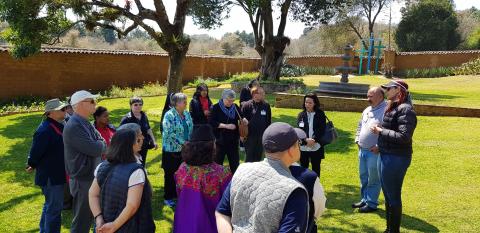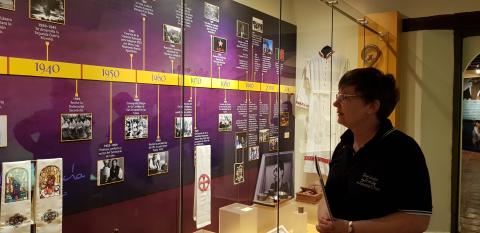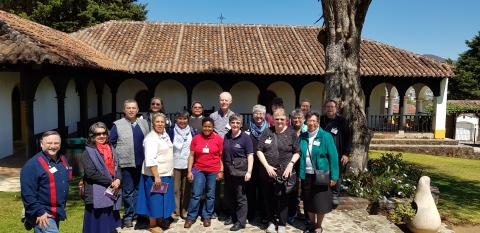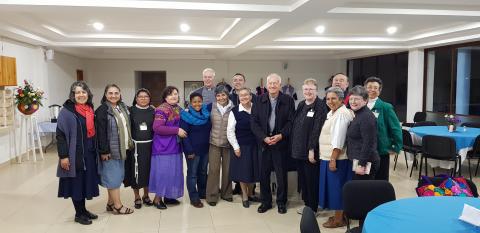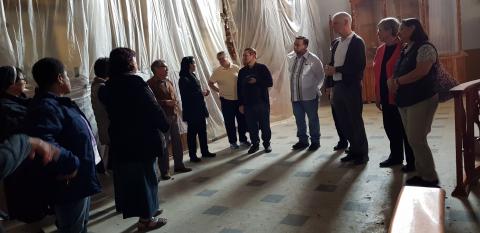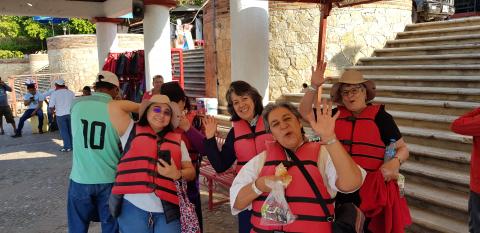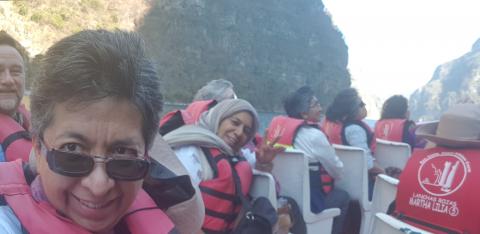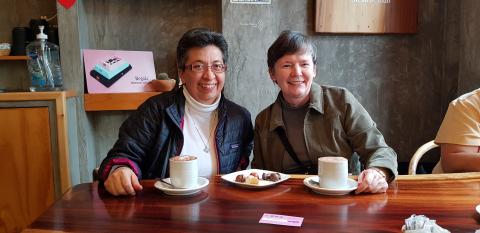Reflection on the InterAmerican Meeting
by Jayne Helmlinger, CSJ - LCWR President-Elect
After a long day of travel, four other LCWR board members and I arrived in San Cristóbal de Las Casas in Chiapas, Mexico for a two-and-a-half-day meeting. Those of us representing LCWR (Sharlet Wagner, CSC; Teresa Maya, CCVI; Theresa Sandok, OSM; Kate Katoski, OSF; and I joined the other attendees from the Conference of Religious in Mexico (CIRM), Guatemala, the Canadian Religious Conference (CRC), and the US Conference of Major Superiors of Men (CMSM).
After a good night’s sleep, we began our InterAmerican conference meeting with a beautiful prayer ritual led by several local indigenous men and women. They explained their deep connection with the four elements of wind, water, fire, and earth and how their spirituality and faith are intertwined and deeply connected to their ancestral heritage. Each of us was invited to light candles in the areas of the two elements that spoke most strongly to us in that moment.
The remainder of our first day was spent listening to men and women from this region of Chiapas, including a young seminarian named José. What touched me the most from his sharing was how he practices “nurturing resistance” within himself. I asked what he meant by this and he commented that he resists any aspects of practicing his faith that subtly or overtly suppresses or mutes the expressions of faith by the indigenous people. For too many years, the indigenous people were forced to forgo their customs, practices, and ways of living and being. Listening to José and experiencing his passion for God, Earth, and all peoples, moved me deeply. The words “practicing nurturing resistance” continues to linger within me.
In the afternoon of that first day, we continued to spend time reflecting together on the experience of the indigenous people of the region. We bridged this reflection with the current immigration and refugee movement operative in Guatemala, Mexico, United States, and Canada. We listened to one another and allowed ourselves to be influenced by what we were experiencing among us. We ended our first full day together with liturgy, celebrated by Bishop Rodrigo Aguilar Martínez of San Cristóbal, and John Pavlik, OFMCap (representing CMSM) and Timothy Scott, CSB (CRC executive director).
The next morning we began with a reflective prayer on Pope Francis’ plea for all of God’s people to embrace, protect, promote, and integrate refugees and migrants. We named for one another the ways congregations and others are helping to embrace, protect, promote, and integrate immigrants and refugees in our respective countries.
Following this reflection, we were able to visit a local refugee center run by the diocese of San Cristóbal. We learned of the atrocities facing those who are a part of the migration that is happening in this region of Mexico. The stories we heard were heart-wrenching and fueled the continued desire to respond to this humanitarian crisis occurring around the world.
As our time together came to a close, I reflected on how much had transpired in just two short days together. I left Chiapas with seeds planted in my heart to reflect more deeply on how we, as women religious in the United States, can learn from the stories of nonviolent resistance to forced cultural suppression of language, arts, and the ancestral heritage of the women in our own congregations. For further reflection, please see my comments in the “President’s Column” in April 2019 issue of the LCWR newsletter.

